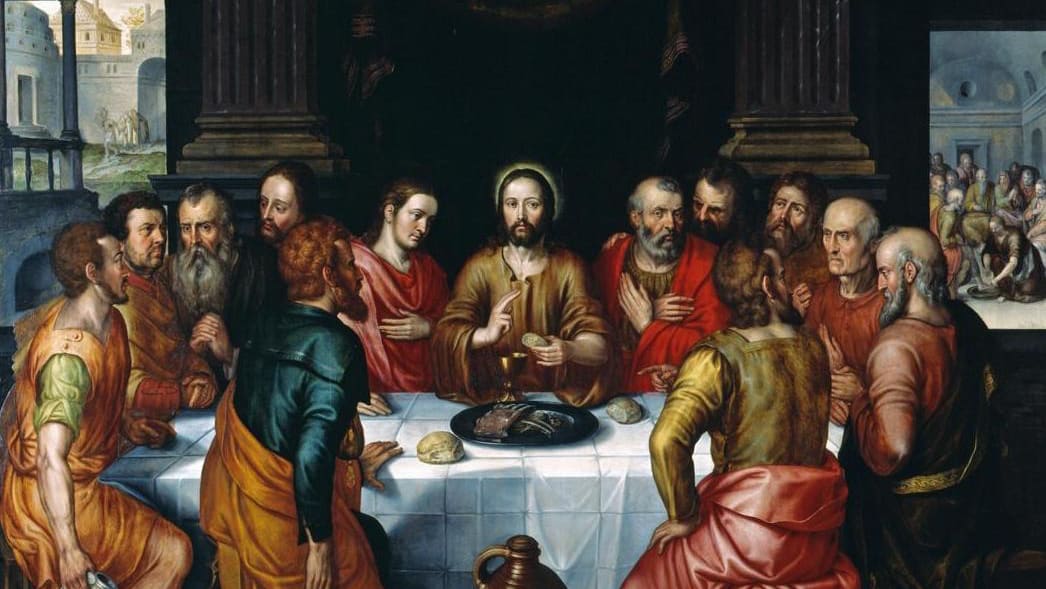About 120 years ago, a woman entered a New York City department store during a heavy storm, wet and disheveled from the weather. Because business was slow that day, the sales clerks had gathered together and were talking baseball, even though there was other work they could have been doing. It was a lazy afternoon, and they were more interested in their discussion, so they ignored the customer—except for one young man we’ll call Henry Lattimore—who went over to the woman, spoke graciously to her, and asked how he could be of assistance. She needed one particular item, which Henry prompted retrieved, and then carefully explained its features with a smile. As the woman was leaving with her purchase, she asked the clerk for his name.
The woman happened to be the wife of the famous multi-millionaire industrialist Andrew Carnegie, and when they later decided to build an estate over in Scotland, she chose this New York department store to provide all the furnishings, but on one condition: that Mr. Lattimore be put in charge of the project. The manager of the store objected, saying there were other, older and better qualified supervisors to consider, but Mrs. Carnegie insisted on the young man who had gone out of his way to assist her. This was the break Henry Lattimore, a lowly, poorly-paid sales clerk, needed in order to get ahead, and he eventually became a wealthy and successful businessman himself (Msgr. Arthur Tonne, Stories for Sermons, Vol. 6, #38). We don’t all have the same talents, abilities, or opportunities, but we do all have the same choice: whether or not to make good use of what the Lord has provided us. Only those who honestly try to serve Him in this way are assured of one day sharing His joy in Heaven.
Some people are workaholics, giving far too much importance to their work, usually at the expense of their families, their health, or their relationship with God. However, it can be just as misguided and sinful to fall into the opposite temptation of laziness or sloth. In the Gospel of Matthew (25:14-30) Jesus warns us of this danger. The master was pleased with the first two servants not only because of their successful investing, but especially because of their diligence and their willingness to take a chance. The third servant could have avoided condemnation by making a similar effort; even if he had lost the investment, his master would still have given him credit for trying. However, he didn’t do this, and was rightly condemned, with no one to blame but himself. The opposite example is given in the Book of Proverbs (31:10-13, 19-20, 30-31) which highly praises a hard-working, industrious wife. All of us are called to be just as responsible and committed in serving God and other people and thus fulfilling our mission in life. St. Paul (1 Thes 5:1-6) refers to us as children of the day, saying, “Let us not sleep as the rest do, but let us stay sober and alert”—not just in terms of the Lord’s eventual Second Coming, but in recognizing and using our opportunities to share the Gospel and serve others in the Name of Jesus.
In the 17th century a boy named Joseph was born in Italy to a poor married couple. He had an unhappy childhood, and when his father died, his mother treated him as a useless burden. Perhaps in reaction to this, Joseph disengaged himself from the world around him; he became absentminded and lazy, and spent most of his time daydreaming and wandering around his hometown. At the age of seventeen his mother arranged for him to be apprenticed to a local shoemaker, but Joseph had no aptitude for the work, so he tried to enter the Franciscan Order. He was rejected, but managed instead to become a Capuchin lay brother; within a year, however, the Capuchins dismissed him as unsuitable. Joseph next sought aid from a wealthy uncle, but was refused because of his irresponsible reputation—so he returned home a failure, to his mother’s great displeasure. In her exasperation, she pulled some strings to have him accepted as a servant in a different Franciscan house nearby—and there he finally found his niche. Joseph became more disciplined and successful in his simple labors, and grew in humility, grace, and self-denial—to the point where he was allowed to study for the priesthood, and was eventually ordained. Today he is known as St. Joseph of Cupertino.
We cannot be saved, let alone become saints, without God’s grace—but it’s necessary for us to accept this grace and then actively use it. As a Greek proverb says, “God gives the birds their food, but He does not throw it into their nests.” In the same way, the Lord offers us everything we need to carry out His plan for us and thus become worthy of eternal life—but we must choose to cooperate with this plan. Lucifer, the greatest of the angels, refused to do this, and as a result, he and the angels who followed him into rebellion were forever cast out of Heaven. The devil, in his wounded pride, is now trying to take out his anger against God on us. Satan has many faults, but laziness is not one of them; he is constantly working against us, seeking to tempt and deceive and distract us, while trying to discover and use our weaknesses against us. This means we must persevere in living out our faith, actively seeking the gifts and guidance of the Holy Spirit each day as we try to fulfill our calling as disciples of the Lord Jesus.
Specifically, we have to pray every day and attend Mass every weekend—especially when we don’t feel like it. If our circumstances allow, we need to be active in our parish or local community, rather than always relying on someone else to do what needs to be done. We must take our responsibilities as citizens seriously, voting, working for, and promoting those values and policies which honor God and treat all people with justice and dignity. We need to continue growing in grace and learning more about our Faith, so that we can share it with others and defend it when it’s under attack. Above all, we need to put God first in our lives by trying to know and do His will in all things. Sometimes this will be easy and rewarding; other times it will be difficult and unpleasant; true followers of Jesus can expect to experience both success and failure, peace and suffering, and approval and unpopularity. As we see from the story of St. Joseph of Cupertino, and the two faithful servants in Our Lord’s parable, our sincere efforts to know and do the will of God will be pleasing to Him and earn for us an eternal reward. This should be our goal while here on earth—for only in this way can we hope one day to hear the words, “Come, share your master’s joy.”








